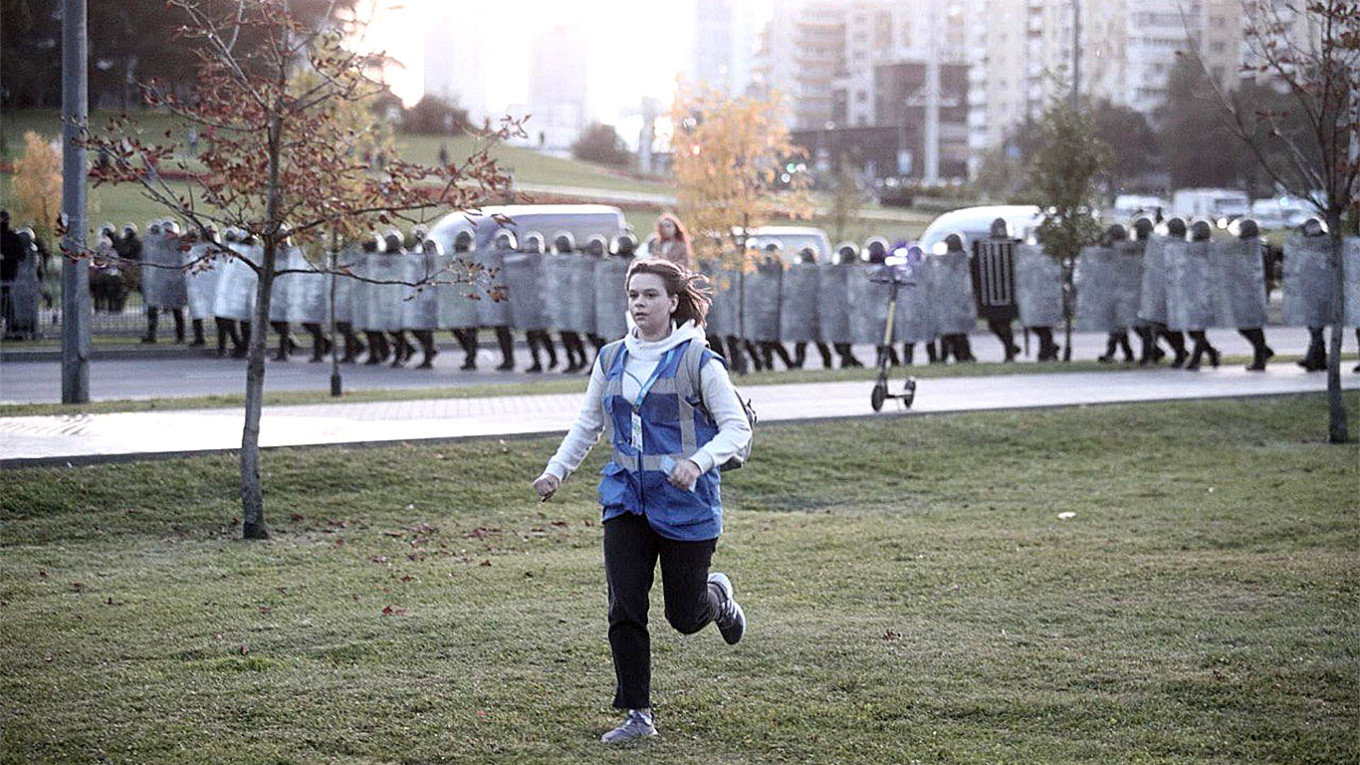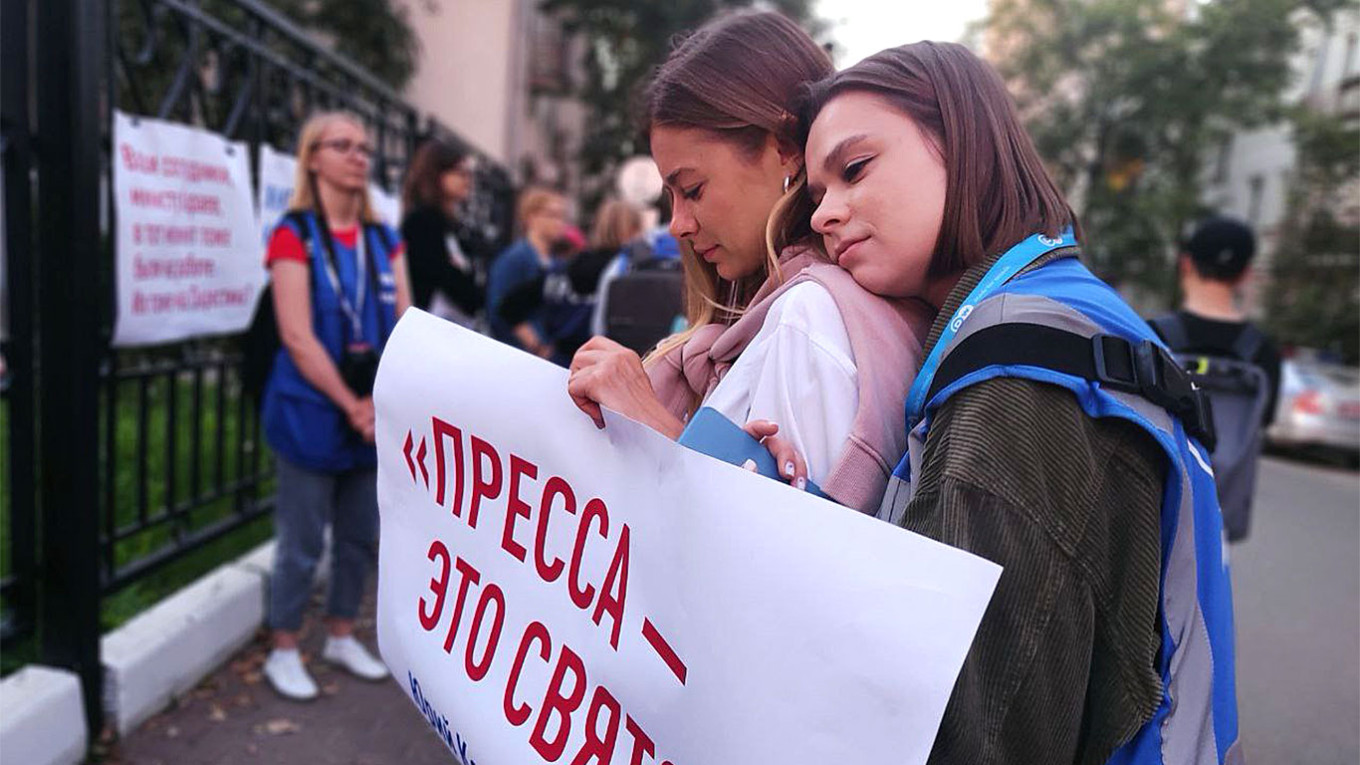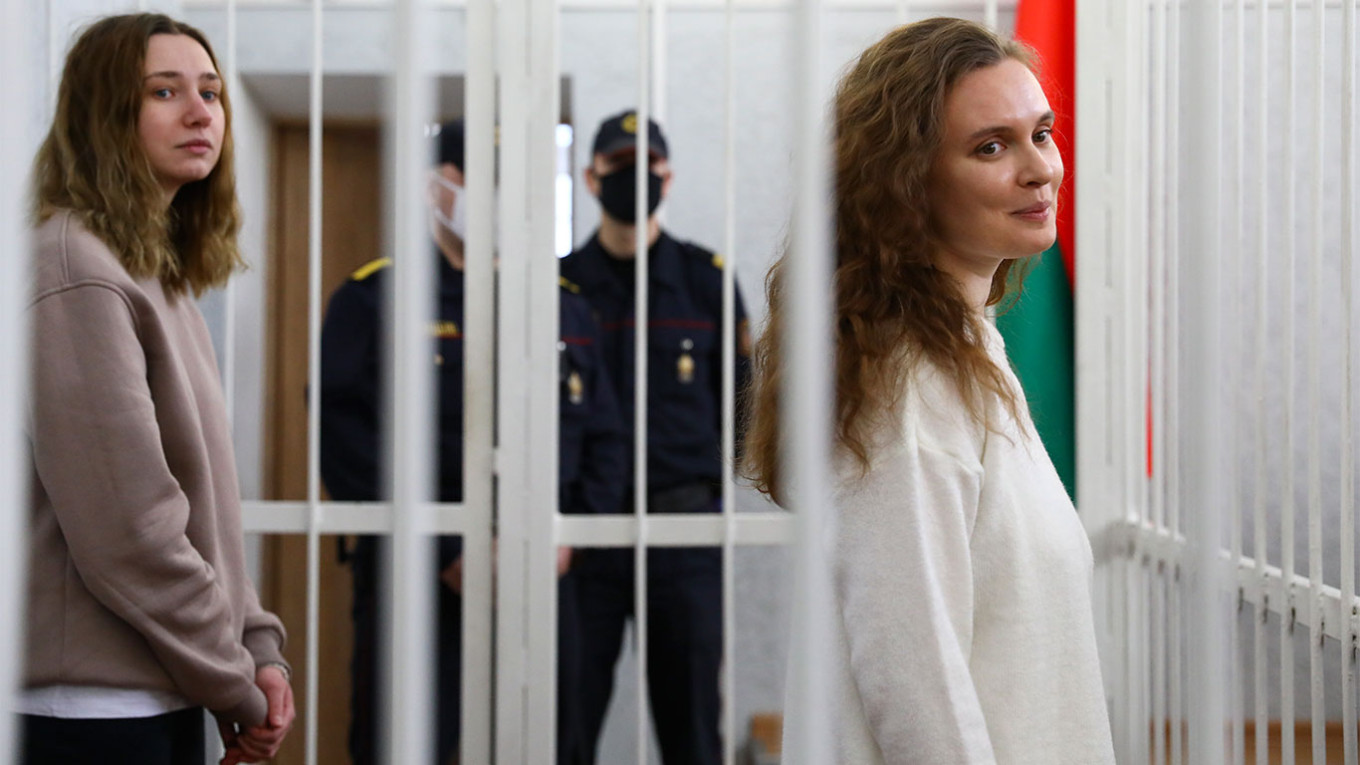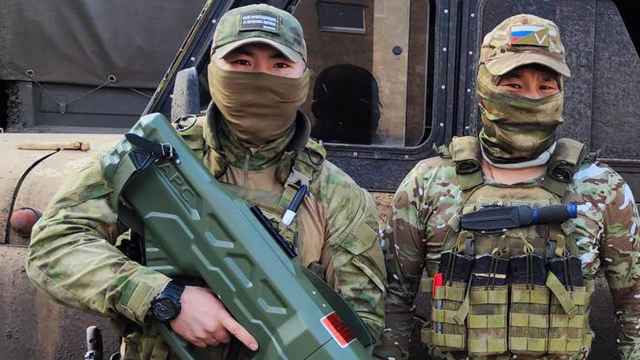It has been two years since I was forced to leave my home country, Belarus, and become a journalist in exile. I have not been home since. I left in September 2021, a year after the presidential elections that sparked the largest protests in modern Belarusian history. This peaceful uprising against the regime of corrupt dictator Alexander Lukashenko has brought not only the winds of freedom and the feeling of national pride to my country, but also an unprecedented level of repression.
By the time I left, I had already experienced arbitrary arrest and the groundless withdrawal of my press accreditation, preventing me from working safely and legally. My best friend, who is also a journalist, was jailed. Twice a week, I went to the prison to deliver her parcels and letters. Every morning, I woke up and listened to footsteps outside my door, wondering if the authorities were coming to throw me in prison, too.
I remember how in 2020, Belarus was everywhere in the news. Beautiful, brave people took to the streets with white-red-white flags. Sviatlana Tsikhanouskaya unexpectedly emerged as the leader of the democratic movement to challenge Lukashenko's grip on power. People around the world were inspired to stand in solidarity, and Western politicians declared their support for democratic Belarus, refusing to recognize Lukashenko as the legitimate president.
Unfortunately, in 2023, the situation looks completely different. Both the continued efforts of freedom-seeking Belarusians and the government’s crackdown on dissent have faded into the background amid numerous crises around the world.
Belarus still desperately needs the world's support and attention. Although there are no longer large-scale protests, Belarusian people continue to face severe repression. According to the Viasna human rights center, at least 46,700 Belarusians were arrested and kept in detention centers in inhumane conditions during the past three years. Currently, there are 1,449 political prisoners in Belarus, 32 of whom are journalists and media workers.

Individuals in Belarus face detention for expressing any form of support for Ukraine. During the first year of Russia’s war, at least 1,630 Belarusians were prosecuted for involvement in anti-war protests or railway sabotage. The true scale could be even worse, as Belarusian human rights defenders and media do not always receive the whole information about repression in the country.
All of this may look like mere numbers or horrific statistics, but behind each of these figures is a human story — unfair repressive actions taken by the authorities that ruined the life of a person and their loved ones. Andrei Aliaksandrau, the editor who introduced me to journalism, was sentenced to 14 years in prison for "high treason" and other far-fetched allegations like "the creation of extremist formations.” While in jail, he married his partner Irina Zlobina, who was herself sentenced to nine years.
My colleague Maryna Zolatava, the editor-in-chief of TUT.BY (Belarus’ largest media outlet, now forcibly closed), was sentenced to 12 years in prison just for doing her job. Belarusian philosopher Uladzimir Mazkevich, 67, whose lectures I listened to with admiration, went on hunger strike in jail. Nevertheless, he was sentenced to five years in prison. There are many stories like this.
The outside world has not received any information about the health and condition of even the most famous political prisoners like Maryia Kalesnikava, Viktar Babaryka, or Siarhei Tsikhanousky for over half a year. The Belarusian authorities’ strategy is to isolate political prisoners in hopes that the world will forget about them. The lack of information about their well-being is especially concerning because Belarusian prisons are notorious for their unsanitary conditions, overcrowded and freezing cells, and generally inhuman treatment. In this environment, the prospects for survival are unpredictable — activists Vitold Ashurak and Mikalai Klimovich, along with artist Ales Pushkin, have all died in Belarusian prison.
Furthermore, Belarus’ authoritarian government has invested significant efforts in dismantling civil society. According to the human rights organization Lawtrend, 1,457 NGOs have been eliminated by authorities in the last three years. This includes groups supporting victims of domestic violence, people with disabilities, and even protecting birds.
The independent Belarusian media sector was also one of the main targets of repression from the start of the political crisis. Since 2020, 57 Belarusian journalists have been imprisoned on criminal charges, more than 3,000 websites have been blocked, and 17 Belarusian independent media have been declared extremist organizations. Even more crucially, the authorities criminalized media consumption, sentencing Belarusians to prison for sharing posts from the wrong Telegram channel or something as small as reacting to a photo of a security officer with a poop emoji.
These unprecedented repressions forced over 180,000 Belarusians, including 400 journalists like me, to emigrate. But even Belarusians living in exile cannot escape from the reach of Lukashenko's government, which has banned them from obtaining new passports and other official documents at embassies abroad. This puts a great deal of pressure not only on Belarusian emigrants but also on their host countries, which must deal with thousands of people with expired documents.
Despite facing daily suppression from authorities or being pushed abroad, Belarusians never stop fighting for their country’s democratic future. Tsikhanouskaya, as leader of the Belarusian Democratic Forces, regularly meets with Western politicians in an effort to keep Belarus on the agenda and seek official recognition for her proposed "New Belarus" passports for Belarusians in exile.
Belarusian independent media are still working in exile, attempting to provide their fellow countrymen with reliable information and actually succeeding in it. New projects are constantly emerging.
The global Belarusian diaspora raised nearly 600,000 euros ($652,000) during the “We Care” online Marathon of solidarity with political prisoners. Belarusian experts from various fields are producing a list of reforms, trying to imagine what a democratic future for Belarus would look like.
Inside the country, people continue to hold peaceful assemblies (though not on the same scale as in 2020) to demonstrate their opposition to the regime.
In this situation, the international community, particularly the European Union, should not let its support for a democratic Belarus wane. It is necessary to maintain pressure on Lukashenko's government and not be fooled by his deceptive actions like before. The EU must not forget about the 1,449 political prisoners whose health is wasting away in Belarusian prison, and should demand their release.

But more importantly, Belarusians need institutional support for their fight. Sustainable financial and practical support should be secured for media and civil society organizations. Furthermore, Belarusians require opportunities for education and professional development so they can run Belarus’ new democratic structures. EU support could also be expressed by formally recognizing these efforts and issuing statements in favor of integrating Belarus into the European community in the future.
A democratic Belarus is in the European Union’s interests. For over two years, Lukashenko has been ferrying migrants to the borders of Lithuania, Latvia, and Poland, which in response have erected walls to defend themselves. He allowed Putin to use Belarus as a staging ground for invading Ukraine. And authoritarian tactics, in general, can be quite contagious because, as we see, Russia is implementing many of the repressive methods employed in Belarus.
I would like the world to understand that Belarus’ absence from the headlines does not mean this crisis is over. I have spent two years of my life in exile, but I am determined to return to help my country become the best in the world. I am sure that time will come soon.
Belarusians have not given up their fight. With the help of the international community, there is definitely hope for my country’s future.
A Message from The Moscow Times:
Dear readers,
We are facing unprecedented challenges. Russia's Prosecutor General's Office has designated The Moscow Times as an "undesirable" organization, criminalizing our work and putting our staff at risk of prosecution. This follows our earlier unjust labeling as a "foreign agent."
These actions are direct attempts to silence independent journalism in Russia. The authorities claim our work "discredits the decisions of the Russian leadership." We see things differently: we strive to provide accurate, unbiased reporting on Russia.
We, the journalists of The Moscow Times, refuse to be silenced. But to continue our work, we need your help.
Your support, no matter how small, makes a world of difference. If you can, please support us monthly starting from just $2. It's quick to set up, and every contribution makes a significant impact.
By supporting The Moscow Times, you're defending open, independent journalism in the face of repression. Thank you for standing with us.
Remind me later.








